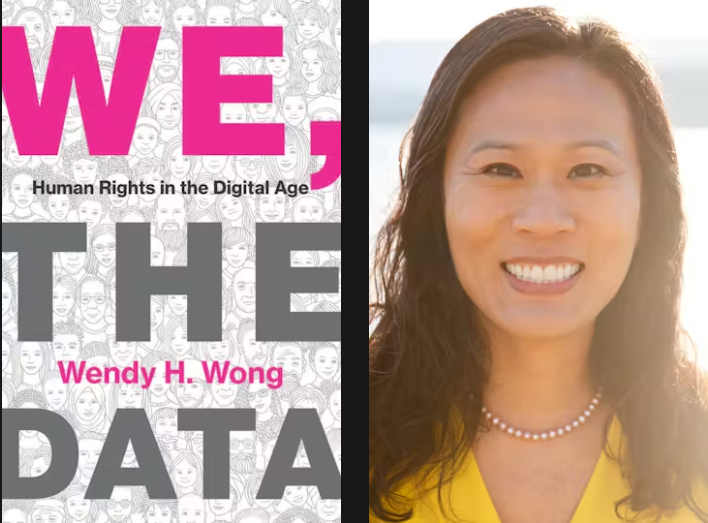This year’s winner of the Balsillie Prize for Public Policy was Wendy H. Wong’s book, We, The Data: Human Rights in the Digital Age.
The Winner
We, The Data is an eye-opening, gripping look at the ways in which humanity is being codified, monitored, and tracked at alarming speed and intensity — in largely unaccountable ways. Understanding how data is being collected, why, and by whom are central to grappling with the legislative protections needed to ensure Canadians continue living with dignity and autonomy. Wong expertly argues that this understanding is central to democratic freedoms and the ongoing protection of citizens’ human rights. We, the Data is a highly compelling and original book about the risks to society when the drive to collect data outpaces our capacity to contain it, and how to fix it before it is too late. Balsillie Prize jury
Wendy Wong is a Professor of Political Science and Principal Research Chair at the University of British Columbia
I read Wendy’s book. Going to Youtube I found and watched a presentation by Wong, about her book and work, from earlier this year, at the Institute for Futures Studies in Sweeden.
The presentation, and an excellent q&a that followed, are worth the watch and listen.
Datafication and Human Rights
With assistance from some generative AI, here’s a guide to ten key terms and concepts in Wong’s presentation:
- Datafication refers to the increasing transformation of human activities and experiences into digital data. It’s a human rights issue because this process often occurs without our full understanding or consent, potentially impacting our autonomy, dignity, and equality.
- Data stickiness describes the persistent nature of data. Once created, data is difficult to erase, remains linked to other datasets, and can endure indefinitely. An example is facial recognition data collected from public spaces, which can be stored and analyzed without our knowledge or control.
- Data stakeholders. Wong urges us to move beyond the passive role of “data subjects” and embrace the active role of “data stakeholders”. This involves recognizing our inherent stake in how our data is collected and used, and demanding more transparency and control over these processes.
- Datafication and privacy. Wong argues that focusing solely on privacy is insufficient because it fails to address the broader social and political implications of datafication. Datafication impacts not only our individual privacy but also our collective well-being, influencing social interactions, political discourse, and access to opportunities.
- Human rights. The four core values underpinning the human rights system are dignity, equality, autonomy, and community. In the digital age, these values are challenged by datafication’s potential to erode individual dignity through surveillance, perpetuate inequalities through biased algorithms, restrict autonomy through manipulation, and fracture communities through targeted content.
- Platform governance refers to the power wielded by tech companies like Facebook and Google to set rules and moderate content on their platforms, effectively shaping online interactions and information flows. An example is Facebook’s Oversight Board, which uses human rights frameworks to judge content moderation decisions.
- Data scraping boundaries. OpenAI scraping YouTube videos exemplifies the potential consequences of neglecting established norms. This act violated copyright laws and YouTube’s terms of service, highlighting the urgent need to establish clear guidelines and enforce existing regulations in the digital realm.
- Data literacy encompasses understanding how data is created, used, and interpreted. Wong argues it should be a human right because it equips individuals with the knowledge and critical thinking skills to navigate the data-driven world, ensuring informed participation and protecting against manipulation.
- Libraries as hubs for data literacy education. Wong envisions libraries as crucial hubs for promoting data literacy. Libraries can leverage their existing infrastructure and expertise in organizing information to develop and deliver educational programs that empower communities with data skills and critical awareness.
- The “collective action problem” in the age of datafication arises from the difficulty in identifying and mobilizing groups affected by data-driven decisions. Algorithmically determined categories often remain opaque, hindering the formation of collective action to challenge or change these processes.
Concluding thoughts
Its easy to go down the rabbit hole on the topic of data. Of particular interest to me is the data literacy aspect, and how to promote it. I’m a big fan of the community role libraries can play, not to mention a prolific reader of books. As someone whose spent most my professional life dealing with information systems and data, in one form or another, I hope to spend more time in 2025 learning and doing data literacy.


Speak Your Mind